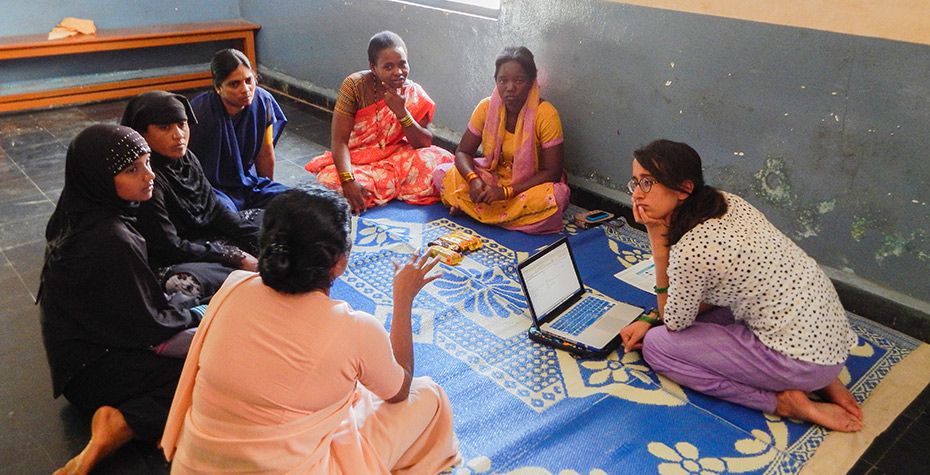Student Heads to India with “a Suitcase Full of Mosquito Spray and an Open Mind,” Returns With Better Understanding of Herself

Jessica Saifee ‘16 says a small village, one that’s “not even on the map,” changed her life. Saifee, a South Asian Studies major concentrating in public health, recently completed an internship in Mainilli, in Southern India, conducting research on marginalized groups and studying the accessibility of healthcare for women and the Siddis population as a Greenhouse Scholar.
“I went to Mainilli with the purpose of doing public health research on the Siddi community,” Saifee wrote in a reflection essay. “Besides talking to my supervisor and a few people who went there, I knew very little about the village or its inhabitants. I could only go there with a suitcase full of mosquito spray and an open mind.”
Saifee described Mainilli as “a diverse place where people of different ethnicities and castes—specifically Waddas, Lambanis, Siddis, and Gowlis—coexist.” Adding, “the people living there are at the bottom of the social order as conceived by the caste system. These people face socioeconomic discrimination because of their birth into a lower caste. This extends to limited educational opportunities and healthcare access.”
Shortly after her arrival, Saifee shadowed a nurse, the sole treatment provider, at the Sisters of the Holy Cross Covent’s dispensary. The dispensary is one of the few places that provides treatment in the region. “By shadowing the nurse, I slowly started to epidemiologically understand the region,” Saifee wrote. “I observed that there was a dire need for preventative medicine. Many of the health issues that the villagers faced could have easily been prevented if they changed a few things about their lifestyles (i.e. eating a more balanced diet).”
Saifee applied for, and received, a grant for vitamin A and albendazole from the NGO Vitamin Angels for a total of 7 villages near the convent. She also connected with a group of Accredited Social Health Activists (ASHA) workers who support pregnant women and children under the age of 6 who live in the village.
“After conducting interviews with ASHA workers, I discovered that there was a government-run vitamin A distribution system that exists,” Saifee wrote. “I researched about this system and found that oftentimes children do not get the dosage they need...more often than not, parents did not know anything about the benefits of vitamins and about healthy diets.”
Saifee began reaching out to children that did not receive the vitamin A dosage. She also held informational meetings with women’s self-help groups run by the convent to educate the community about vitamins, especially vitamin A. The program was a success.
“The experience galvanized my desire to work in rural areas,” Saifee wrote. “I also think that spending time in the village made me appreciate all the opportunities I was given, but it also reminded me that I have a duty to use my skills to help others.” Besides public health research, Saifee set time aside to tutor students in English and chemistry.
After completing her internship in Mainilli, Saifee went on to a study abroad program in New Delhi where she examined the Indian public health system more extensively. She said her experiences in Mainilli shaped her study in New Dehli by helping to put a face to the system she was learning.
“Truthfully, I never expected to go to a small village on my first visit to India,” Saifee wrote. “Looking back, I would not have it any other way.”
